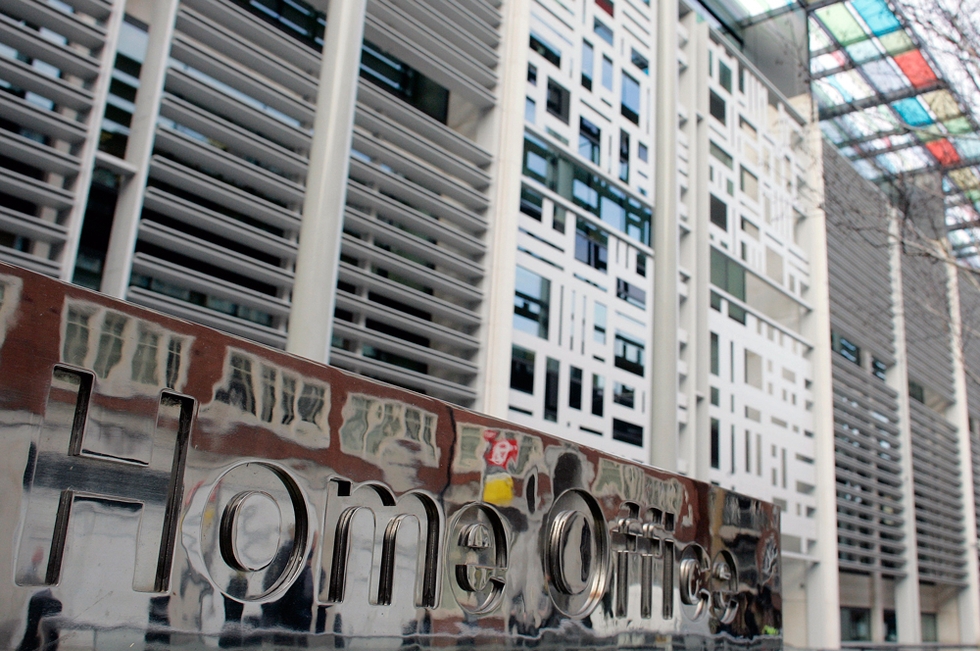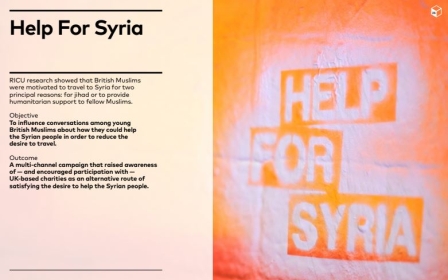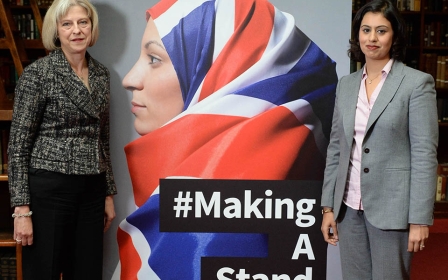UK government fighting to keep details of counter-extremism radio shows secret

The British government is attempting to prevent publication of material that would show how counter-extremism propaganda is being channelled covertly through radio dramas broadcast in the UK.
Lawyers for the government are resisting an attempt to force disclosure of documents that would expose the role the Home Office's secretive Research, Information and Communications Unit (RICU) has played in the creation and production of supposedly independent radio shows.
Despite it being broadcast and produced nearly 10 years ago, the Home Office is attempting to suppress all information about this programme, claiming it to be for reasons of national security.
- Faisal Qureshi, film researcher
RICU, part of the Office for Security and Counter-Terrorism (OSCT) within the Home Office, is known to have been producing and disseminating communications for around a decade as part of the British government's controversial Prevent strategy. The unit goes to great lengths to obscure the extent of its operations.
Government lawyers are arguing that any disclosure - under the UK’s Freedom of Information Act - that revealed details of RICU’s secret involvement in radio drama would jeopardise national security.
"The relevant information clearly concerns matters which have the potential to expose the United Kingdom and its citizens to a national security threat," they said in a submission to the Information Tribunal, the court that is set to rule on an appeal in the case.
'Operational blueprint'
The lawyers also say that although the request centres on a 20-part drama that was broadcast in 2010 by a small community radio station in the north west of England, the "operational blueprint" that was employed at that time is similar to campaign processes being used by the Home Office today.
The Home Office says it wants to conceal the identities of individuals and organisations involved in the project, so that others are not deterred in the future from assisting RICU.
The unit’s communications campaigns are generally disseminated through third-party organisations in order to conceal the British government’s involvement.
At stake following this information request, however, may be the secrecy that obscures the extent and manner in which the Prevent programme is covertly financing and directing the arts more widely in Britain.
In 2016, the Guardian newspaper exposed RICU’s unacknowledged role in the filming of a documentary about Muslim athletes competing at the 2012 London Olympics, which was broadcast on Al Jazeera and the Islam Channel.
Documents leaked at that time showed the communications were aimed at 'Prevent audiences', which were defined as British Muslims, particularly males aged 15 to 39
RICU's work has also included the door-to-door leafleting of 760,000 homes; the creation of a number of websites that appeared to be the work of Muslim civil society groups; and the establishment of what appeared to be a charitable campaign for Syria.
In addition, a communications company under contract to RICU had set up a separate public relations company, which persuaded journalists to take an interest in the press releases of the civil society groups backed by the government without disclosing that the government was behind the campaigns.
Documents that were leaked at that time showed that the communications were aimed at “Prevent audiences”, which were defined as British Muslims, particularly males aged 15 to 39.
The documents also showed that RICU privately stated that it retained editorial control over any material disseminated through third-party organisations, and that its aim was to "effect attitudinal and behavioural change".
Last year, Middle East Eye reported that RICU was modelled on a British Cold War propaganda unit called the Information Research Department, which produced books, newspaper articles and - with the CIA - covertly funded a literary magazine called Encounter.
While the extent of RICU’s involvement in the arts remains largely hidden, a number of former and serving government officials have confirmed that the arts have been receiving direction and funding as part of the Prevent programme.
“This has been going on for some time,” said one person with knowledge of the programme.
'Well-meaning propaganda'
The radio drama at the centre of the Freedom of Information battle was called Divided We Fall, and was broadcast by Preston FM, a community station in Lancashire that has since been relaunched under a different name.
The drama sought to draw parallels between the radicalisation of a young Muslim Asian boy and a young white ex-soldier who had returned from serving in Afghanistan.
Although a press release issued at the time referred to Home Office funding, no mention was made of the involvement of the OSCT or RICU, nor was there any reference in it to Prevent.
The Freedom of Information request has been made by Faisal Qureshi, a Manchester-based film researcher, who argues that the secrecy surrounding RICU’s operations is counter-productive, and that the lack of public scrutiny of covert government funding of the arts may result in the money being misused.
"Despite it being broadcast and produced nearly 10 years ago, the Home Office is attempting to suppress all information about this programme, claiming it to be for reasons of national security," Qureshi said.
"The use of drama in tackling radicalisation is an area that has not been sufficiently examined and it's of interest for researchers to assess how effective a tool it has been."
The request is not being supported by the Information Commissioner’s Office (ICO), which oversees the UK Freedom of Information Act.
In submissions to the Information Tribunal during Qureshi’s appeal, the ICO said that it accepts "that there is a strong public interest in transparency about Home Office involvement in dramatic programmes not broadcast under the Home Office’s banner: the Commissioner recognises that some may deem such programmes – however justified and well meaning – as propaganda".
It added, though, that these concerns were outweighted by the need for an effective counter-terrorism strategy that helps stop people being "drawn into terrorism or extremism".
Much of this week’s two-day appeal hearing was held in private, with the press and the public excluded.
In submissions to the hearing, the Home Office said the radio drama was a key part of the Prevent programme, which forms part of the government’s counter-terrorism strategy.
Sarah Moore, a RICU official, told the hearing that the question of whether to acknowledge Home Office involvement in similar projects was addressed on a case-by-case basis.
She added that she believed the messages being communicated would be less credible if the government was known to be behind them.
The tribunal’s decision is expected to be handed down in a few weeks’ time.
New MEE newsletter: Jerusalem Dispatch
Sign up to get the latest insights and analysis on Israel-Palestine, alongside Turkey Unpacked and other MEE newsletters
Middle East Eye delivers independent and unrivalled coverage and analysis of the Middle East, North Africa and beyond. To learn more about republishing this content and the associated fees, please fill out this form. More about MEE can be found here.





